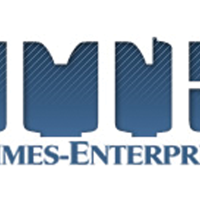Bringing star athletes back to earth | Columns
It was with dry eyes that Australians said goodbye to Novak Djokovic, the tennis superstar their country sent packing because he was not vaccinated against COVID-19. Their laws require foreigners entering the country to be vaccinated. The Serb, there to defend his Australian Open title, apparently assumed he would break the rules for mere mortals.
Djokovic has endorsement deals worth an estimated $30 million a year. Its arrogant refusal to follow the public health mandates imposed on ordinary Australians may reduce its commercial value, as it should.
One sponsor, French clothing brand Lacoste, has already said it will review the controversy. Not a good sign for Djokovic, he also thanked the organizers of the Open “for all their efforts to ensure that the tournament takes place in good conditions for the players, the staff and the spectators”.
As a very casual consumer of professional sports, I’ve long been mystified just how much doing masterful things with a ball warranted trash cans of gold in compensation. As a taxpayer, I don’t like being asked to subsidize professional sports arenas. As a cable TV subscriber, I don’t like the “sports fee” added to my bill. This source of enrichment for professional teams and their players – sneakily turned into a tax – is particularly annoying to us who don’t care who plays, where they play or what they play.
This much-shared irritation with licensed sports celebrities precedes the row over COVID-19 vaccinations. But when you add other bad behavior in defiance of public health measures, you wonder how long before a hole is dug in their inflated value.
Another prime example is Brooklyn Nets guard Kyrie Irving. New York City requires professional athletes to be vaccinated if they want to play at home.
Irving was due to be paid more than $35 million this season but is not on the court as he refuses to take a shot. Irving says he’s not opposed to the vaccine. He just doesn’t want to be told to get it — this in a city where delivery people can’t enter a restaurant without proof of vaccination.
In November, Mayor-elect Eric Adams said New York would not make an exemption for Irving. And although the Nets could let Irving play home games in Brooklyn if they pay a (miserable) $5,000 fine per infraction, the NBA refused to give the go-ahead. The NBA argues that teams should follow local laws, presumably for the good of the sport.
The assumption that sports heroes are unconditionally revered reached a ludicrous height when Djokovic’s lawyers argued that by canceling his visa Australia could stoke hostility towards vaccinations. Really, if his refusal to get his shots influences uninformed fans, all the more reason to ship him.
See. I’ve seen the emotional powers of sports heroes. My house was a house of worship for Tom Brady. Those days are over.
ESPN writer Howard Bryant worries about what this weird sense of entitlement will ultimately do to professional sports. Djokovic “cemented his membership in the most infamous group of the pandemic – the multi-millionaire anti-vax athlete who behaves as if his fame, wealth and huge platform to spread misinformation set him above the rest of us”.
Bryant noted that the usually admirable Los Angeles Lakers forward LeBron James has been posting memes comparing COVID-19 to the flu. Green Bay Packers quarterback Aaron Rodgers lied about being vaccinated, then trolled his critics by claiming he was some kind of Ayn Rand superman.
Some insist the Australian government was making an example of Djokovic. In fact, the government simply made no exception for him. The pedestal on which sports celebrities stand is lowered a lot.
Follow Froma Harrop on Twitter @FromaHarrop. She can be contacted at [email protected].


Comments are closed.